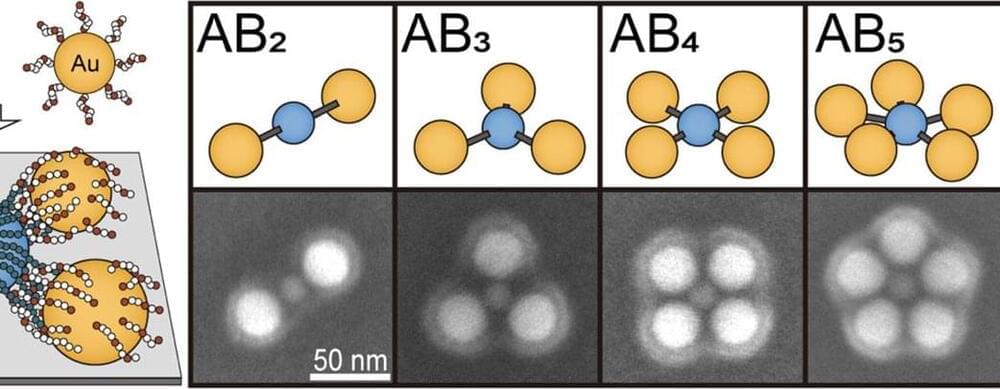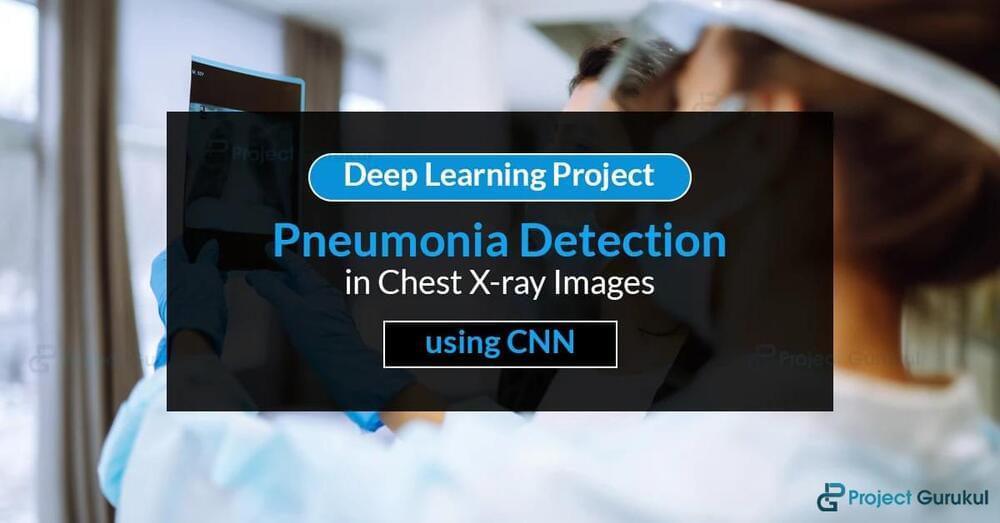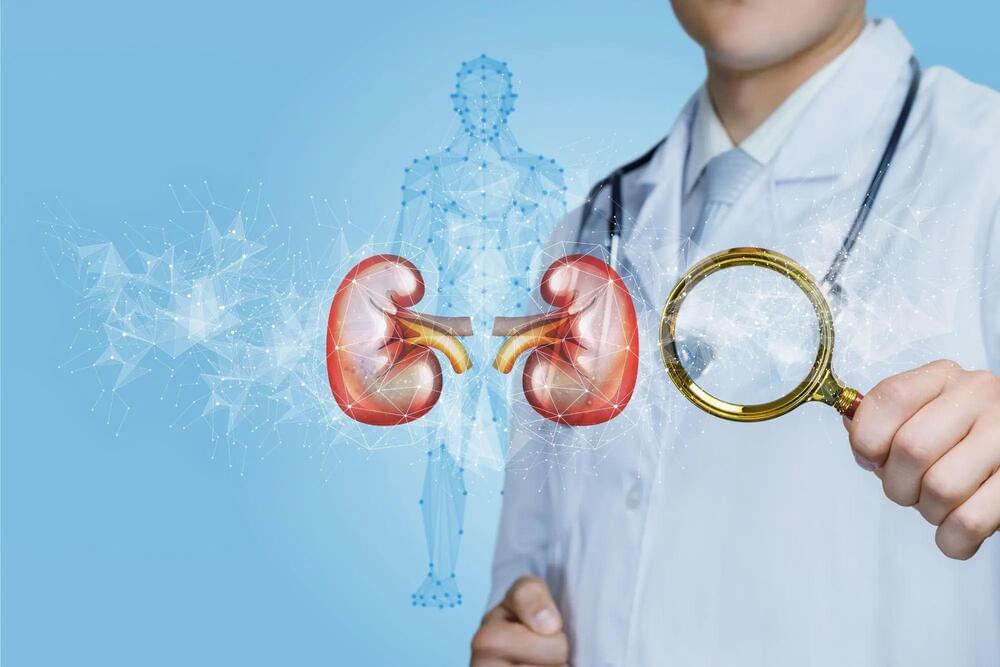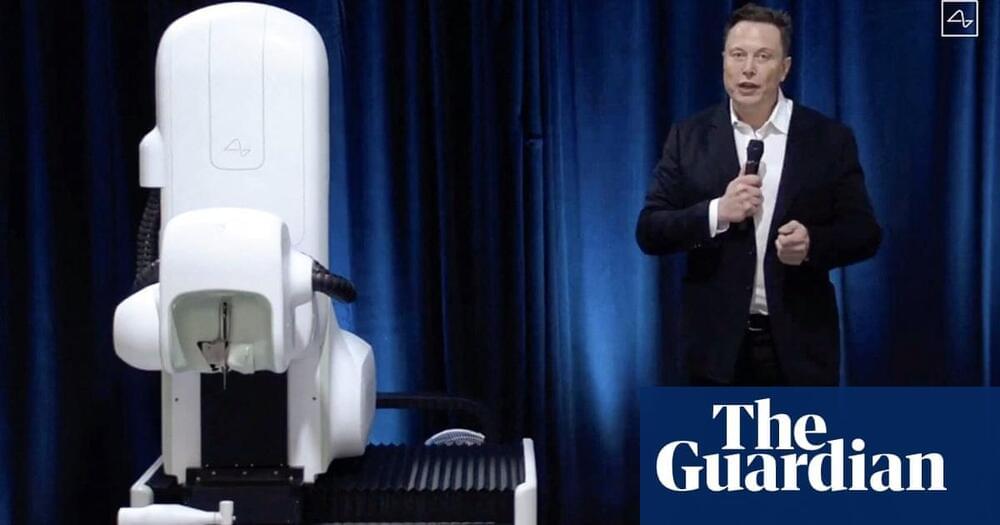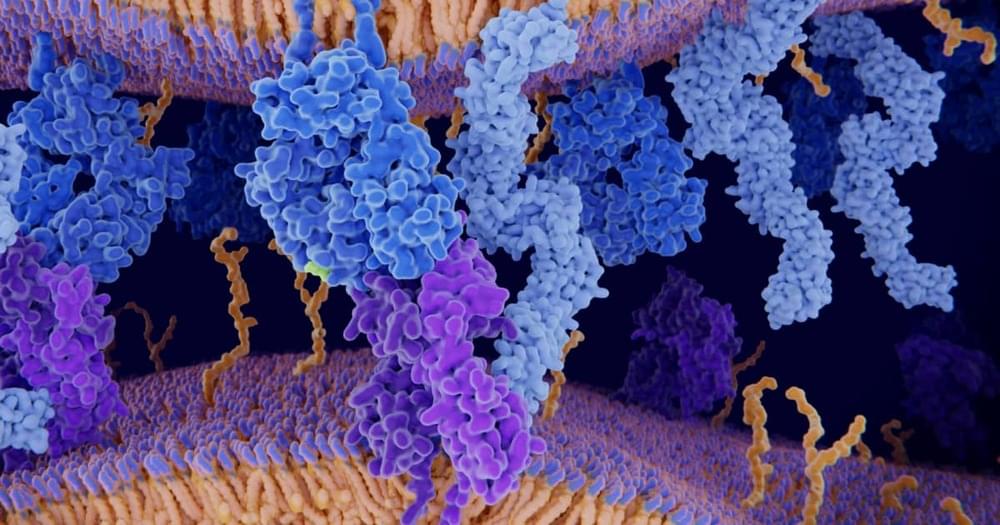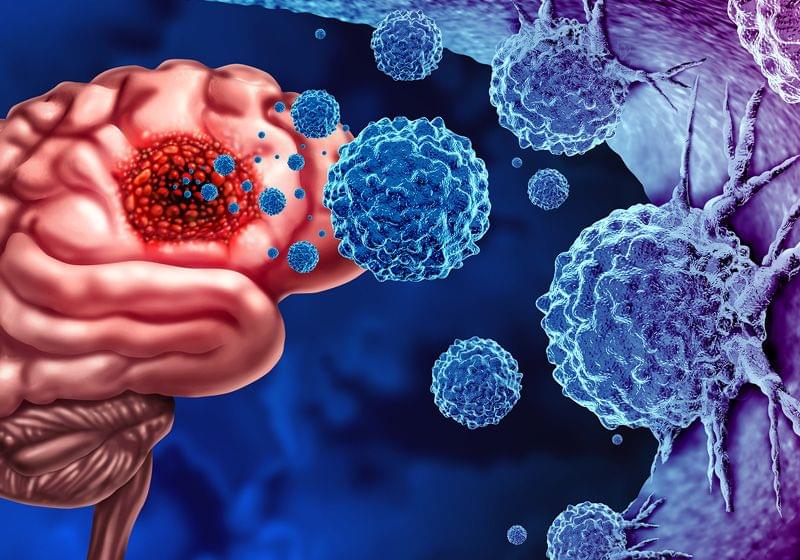Archive for the ‘biotech/medical’ category: Page 504
Sep 20, 2023
Precisely arranging nanoparticles to develop plasmonic molecules
Posted by Paul Battista in categories: biotech/medical, nanotechnology
In the incredibly small world of molecules, the elementary building blocks—the atoms—join together in a very regular pattern. In contrast, in the macroscopic world with its larger particles, there is much greater disorder when particles connect.
A research team at the University of Göttingen has now succeeded in achieving the same precise arrangement of atoms shown in molecules, but using nanometer-sized particles, known as “plasmonic molecules”—combinations of nanoscale metallic structures that have unique properties. The results were published in Angewandte Chemie International Edition, which has classified the article as a “very important paper.”
There is a transition area between molecular and macroscopic levels, an in-between zone called the nanometer range, where there is often a disordered aggregation of particles. Precise arrangement of nanometer-sized structures is one of the major challenges in the ongoing miniaturization in electronics, optics and medicine.
Sep 20, 2023
Pneumonia Detection using Deep Learning
Posted by Shubham Ghosh Roy in categories: biotech/medical, robotics/AI
Develop Pneumonia Detection project using Deep Learning to find if a person has pneumonia or not & if it is caused by bacteria or virus.
Sep 20, 2023
Musk’s Neuralink to start human trial of brain implant for paralysis patients
Posted by Ken Otwell in categories: biotech/medical, Elon Musk, robotics/AI
Time to link up or shut up.
Sept 19 (Reuters) — Billionaire entrepreneur Elon Musk’s brain-chip startup Neuralink said on Tuesday it has received approval from an independent review board to begin recruitment for the first human trial of its brain implant for paralysis patients.
Those with paralysis due to cervical spinal cord injury or amyotrophic lateral sclerosis may qualify for the study, it said, but did not reveal how many participants would be enrolled in the trial, which will take about six years to complete.
Continue reading “Musk’s Neuralink to start human trial of brain implant for paralysis patients” »
Sep 20, 2023
Sweeping Discovery — Scientists Discover a Previously Unknown “Housekeeping” Process in Kidney Cells
Posted by Genevieve Klien in categories: biotech/medical, health, mathematics
Scientists from the University of Texas at Dallas have identified a previously unknown “housekeeping” process in kidney cells that ejects unwanted content, resulting in cells that rejuvenate themselves and remain functioning and healthy.
This unique self-renewal method, distinct from known regeneration processes in other body tissues, sheds light on how the kidneys can maintain their health throughout one’s life in the absence of injury or illness. The team detailed their findings in a study recently published in Nature Nanotechnology.
Unlike the liver and skin, where cells divide to create new daughter cells and regenerate the organ, cells in the proximal tubules of the kidney are mitotically quiescent — they do not divide to create new cells. In cases of a mild injury or disease, kidney cells do have limited repair capabilities, and stem cells in the kidney can form new kidney cells, but only up to a point, said Dr. Jie Zheng, professor of chemistry and biochemistry in the School of Natural Sciences and Mathematics and co-corresponding author of the study.
Sep 20, 2023
Elon Musk’s Neuralink approved to recruit humans for brain-implant trial
Posted by Genevieve Klien in categories: biotech/medical, Elon Musk, neuroscience
Elon Musk’s brain-implant startup, Neuralink, said it has received approval from an independent review board to begin recruiting patients for its first human trial. The company is seeking people with paralysis to test its experimental device in a six-year study.
Sep 20, 2023
Pioneering CBD For Epilepsy Treatment And Prevention
Posted by Omuterema Akhahenda in categories: biotech/medical, health
A Texas A&M University professor and a team of pharmacology researchers are spearheading advances in the use of medical cannabinoids for epilepsy and seizure disorders.
A team led by Dr. D. Samba Reddy, a Regents Professor in the Department of Neuroscience and Experimental Therapeutics at the Texas A&M University School of Medicine, has made progress in determining efficacy, safety and new applications of cannabinoid therapeutics. Reddy’s work establishes a foundation for tailored and effective epilepsy treatments, offering hope to those facing its challenges.
The team’s research on epilepsy has resulted in the publication of five key papers featured in the May 2023 issue of the journal Experimental Neurology.
Continue reading “Pioneering CBD For Epilepsy Treatment And Prevention” »
Sep 20, 2023
Matchmaking (with AI) to help proteins pair up
Posted by Shubham Ghosh Roy in categories: biotech/medical, robotics/AI
Finding the perfect match isn’t easy for proteins. This AI model determines the best pairs — information that’s important for better drug and vaccine design.
Sep 20, 2023
Epigenetic Marks May Cause Brain Tumor Formation
Posted by Shubham Ghosh Roy in categories: biotech/medical, genetics, neuroscience
Scientists established an epigenetic mouse model for glioma, providing insight into how epigenetics can initiate cancer.
Sep 20, 2023
Tiny sea creatures reveal the ancient origins of neurons
Posted by Saúl Morales Rodriguéz in categories: biotech/medical, evolution, neuroscience
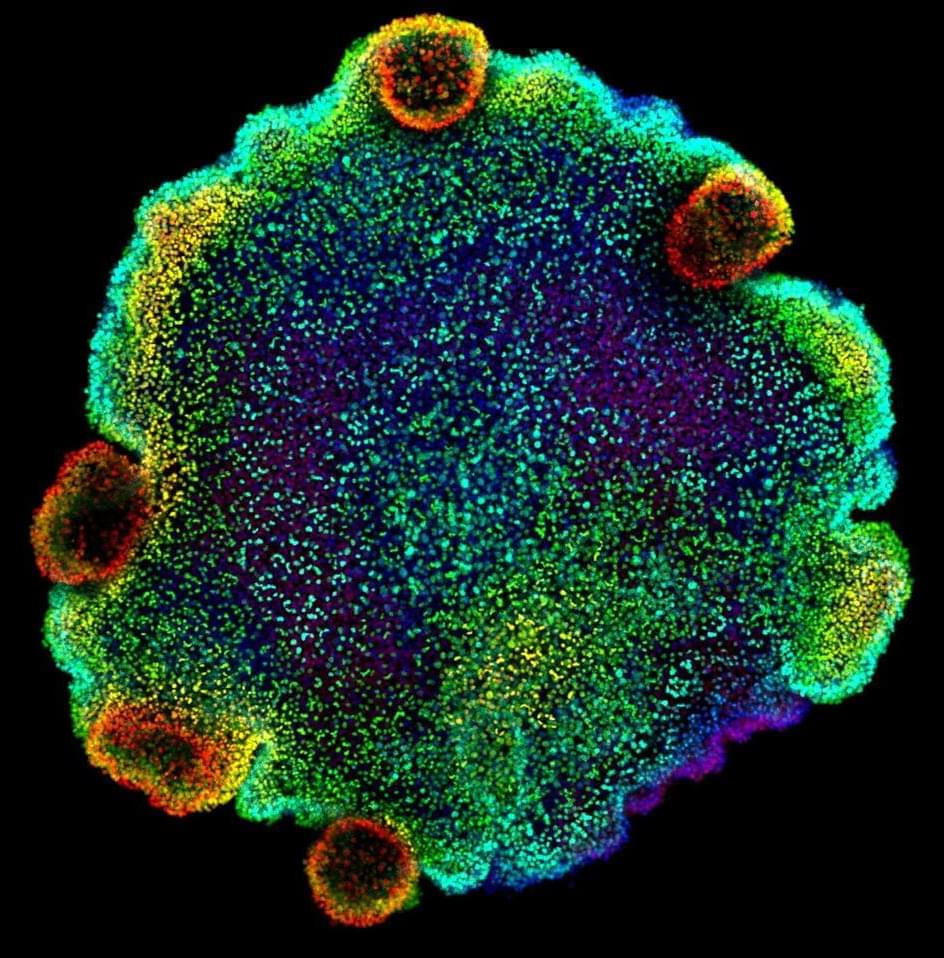
A study in the journal Cell sheds new light on the evolution of neurons, focusing on the placozoans, a millimeter-sized marine animal. Researchers at the Center for Genomic Regulation in Barcelona find evidence that specialized secretory cells found in these unique and ancient creatures may have given rise to neurons in more complex animals.
Placozoans are tiny animals, around the size of a large grain of sand, which graze on algae and microbes living on the surface of rocks and other substrates found in shallow, warm seas. The blob-like and pancake-shaped creatures are so simple that they live without any body parts or organs.
Continue reading “Tiny sea creatures reveal the ancient origins of neurons” »

